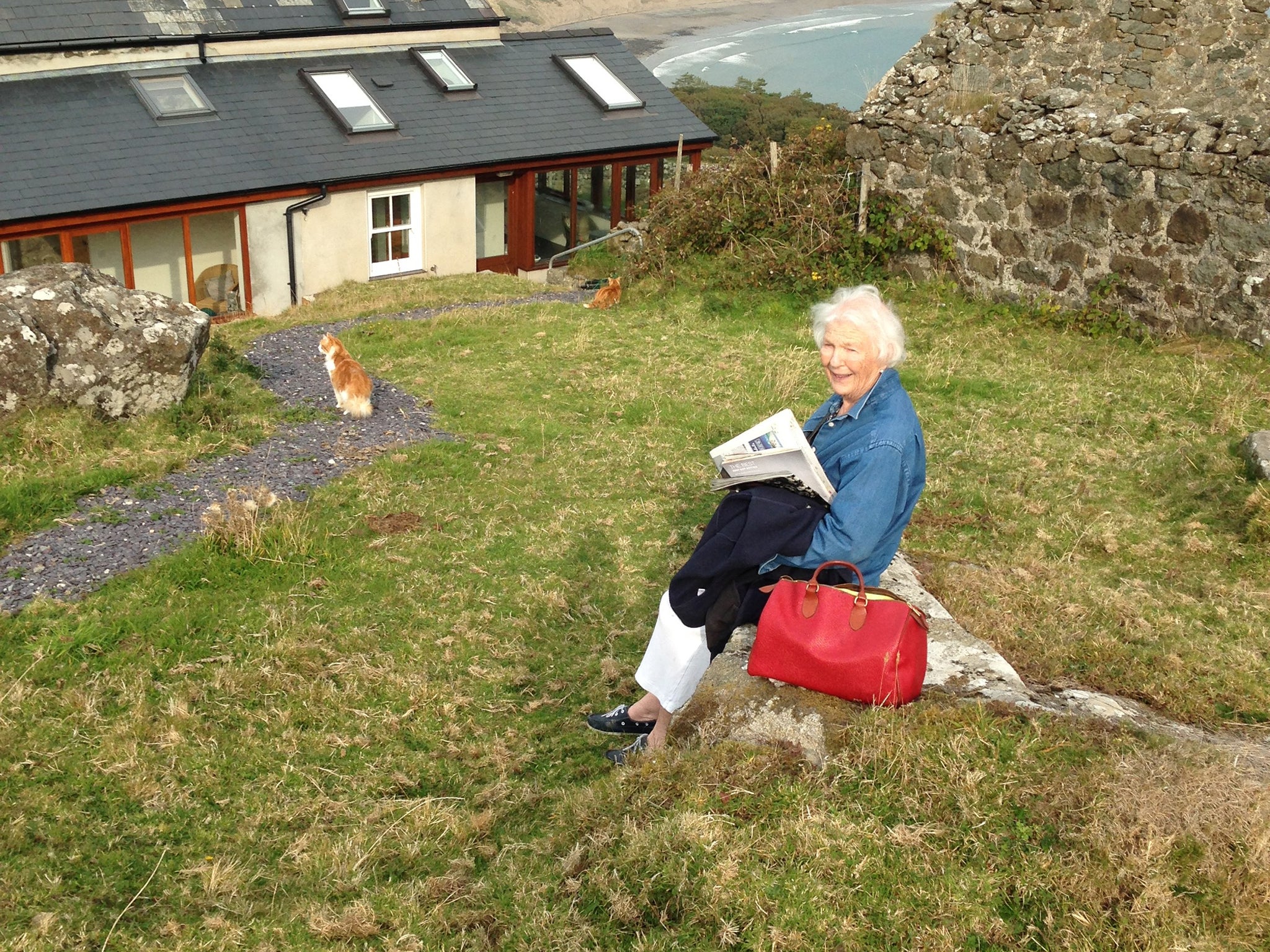Jean Stogdon: Social worker and tireless campaigner who co-founded the influential charity Grandparents Plus
Stogdon was a relentless champion for thousands of UK grandparents and relatives bringing up children

Jean Stogdon came from an impoverished background and left school without formal qualifications, but she had a steely determination to improve the lot of those less fortunate. She became a borough head of Social Services, championed kinship care and went on to co-found the charity Grandparents Plus.
Not one for red tape or for suffering fools gladly, she was a relentless champion for thousands of UK grandparents and relatives bringing up children, often on meagre incomes, who cannot be looked after by their parents for a number of reasons (including substance abuse, mental illness and imprisonment).
The UK has over 13m grandparents, around 200,000 of whom have their grandchildren living with them. Stogdon argued eloquently that the role of grandparents was consistently overlooked by politicians and the voluntary sector, and in 2001 with Lord Michael Young she co-founded Grandparents Plus. Young was a kindred spirit who had drafted Labour's 1945 manifesto, dreamed up the National Consumer Council and Open University and co-written the seminal 1957 work Family and Kinship in East London.
Kinship care – in which relatives take on the traditional roles of biological parents – was not widely recognised by social workers, policymakers and other professionals, but she made it her goal to try to ensure that grandparents were at the centre of childcare decisions.
She met Young in 1998, when, at the age of 70, she enrolled at the School for Social Entrepreneurs in Bethnal Green, which he had created. He died a year after Grandparents Plus was established, and Stogdon set about raising the profile of the grandparent-carer, while caring for her husband, who had been left deaf by meningitis. She worked tirelessly, seeking funding and helping local authorities develop "kinship" care policies regarding placing a parentless child with a relative.
She helped influence the 2008 Children and Young Persons Act, ensuring better recognition for the role of grandparents in childcare and fighting to establish the importance of their access to grandchildren after divorce and separation. Her work led to the creation of a kinship care group for professionals, which now has 180 members from 70 councils and a peer-to-peer network that numbers 6,000.
Born in New Southgate, London in 1928, she had a tough upbringing, the daughter of Percy, a capstan fitter for Standard Telephones & Cables, and Mary (née Ellis), formerly in service but later a housewife. Leaving school at 14 she met Bill Stogdon at the local youth club; he was the grandson of the flower-seller who was said to have inspired Eliza Doolittle.
At 17 she began working as a receptionist at Standard Telephones and married Bill in 1948; the couple had three boys and a stillborn daughter, which left Jean seriously ill for a time.
She saved her salary and, in 1955 they had enough for a deposit on their first, and only, house in Barnet, north London. They met a glamorous group that Jean referred to as "the crowd", which included next-door neighbour and Labour peer, Lord Fenner Brockway, who would call in for a whisky after a day at the Lords, and the actress Shirley Eaton, who became a lifelong friend. At 41 – much to the chagrin of her traditionalist husband – she began studying for a degree in social work at North London Polytechnic. But to placate him she continued to cook and iron; this further nurtured her feminist convictions.
As a committed socialist she led student protests, and within seven years of graduating was Head of Social Services for Camden, running a team of 200 and devising a model service for child protection. But her most influential work came as a campaigner. In retirement, she continued to fight for those with few opportunities and in 1998 she became a children's guardian, appointed to represent a child's interests in legal cases. She spent 10 years doing this but was troubled by how readily local authorities placed children in care homes or put them up for adoption, despite the 1989 Children's Act decree that they should first consider placing the child within the wider family.
In 1999 a Winston Churchill Fellowship enabled her to study the role of Afro-American grandparents within kinship care in the US and convinced her that grandparents and other kin should often be the preferred choice when parents are unable to discharge their duties. Her report won the fellowship's top prize.
In 2009 she was diagnosed with amyloidosis, a rare disease generally affecting the kidneys. In early 2013 she was ill with pneumonia and in intensive care; two months later she was back working for Grandparents Plus, now requiring dialysis three times a week. She decided on "twilight dialysis" in the evenings, leaving her free to campaign during the day. She also continued her 30-year habit of a daily swim. She even successfully campaigned to get wi-fi and a television installed in the waiting room of the hospital she attended.
Shortly before her final illness she was due to speak at the Royal Free Hospital about improving dialysis care. She died at the North London Hospice where, shortly after retiring, she had opened its first charity shop.
MARTIN CHILDS
Jean Elizabeth Sangster, social worker and charity worker: born London 22 July 1928; OBE 2013; married 1948 Bill Stogdon (died 2005; three sons); died London 25 December 2014.
Join our commenting forum
Join thought-provoking conversations, follow other Independent readers and see their replies
Comments